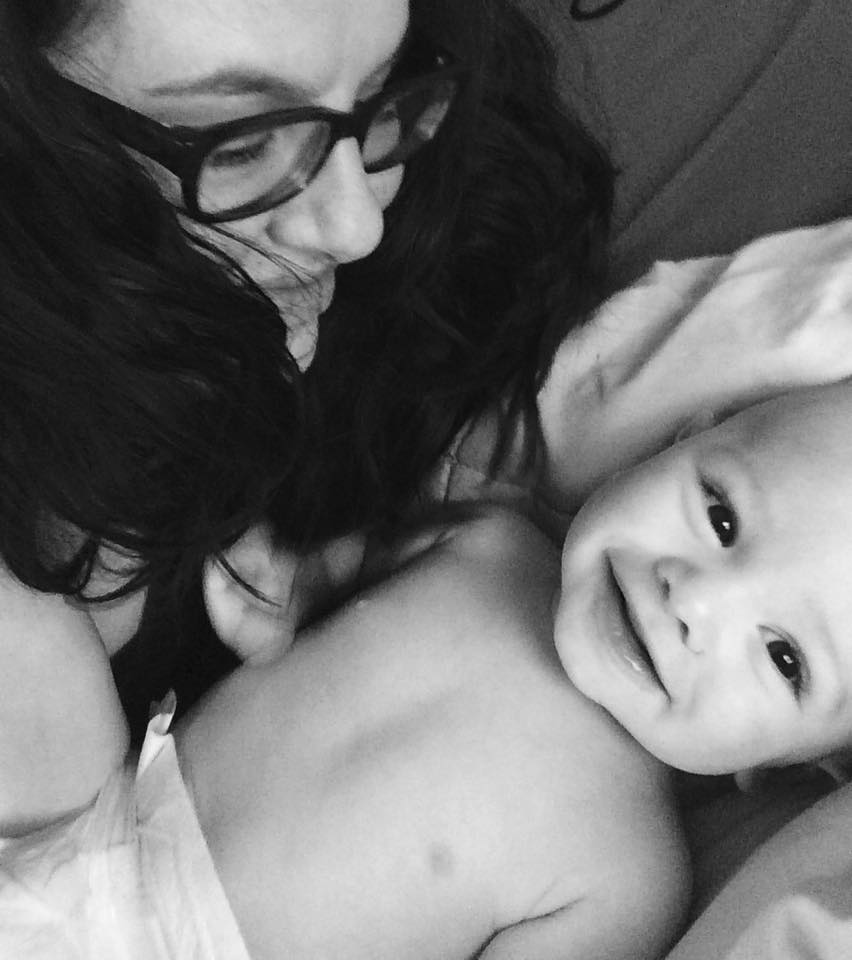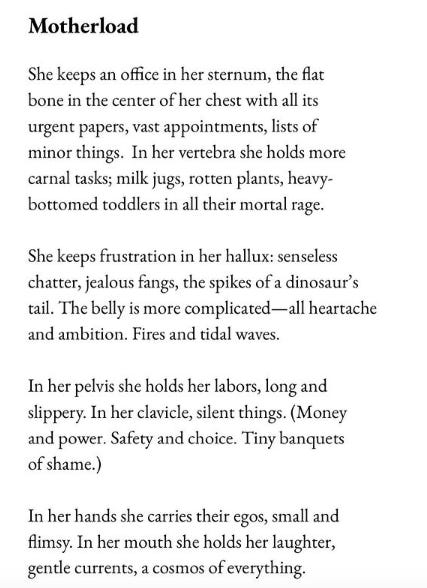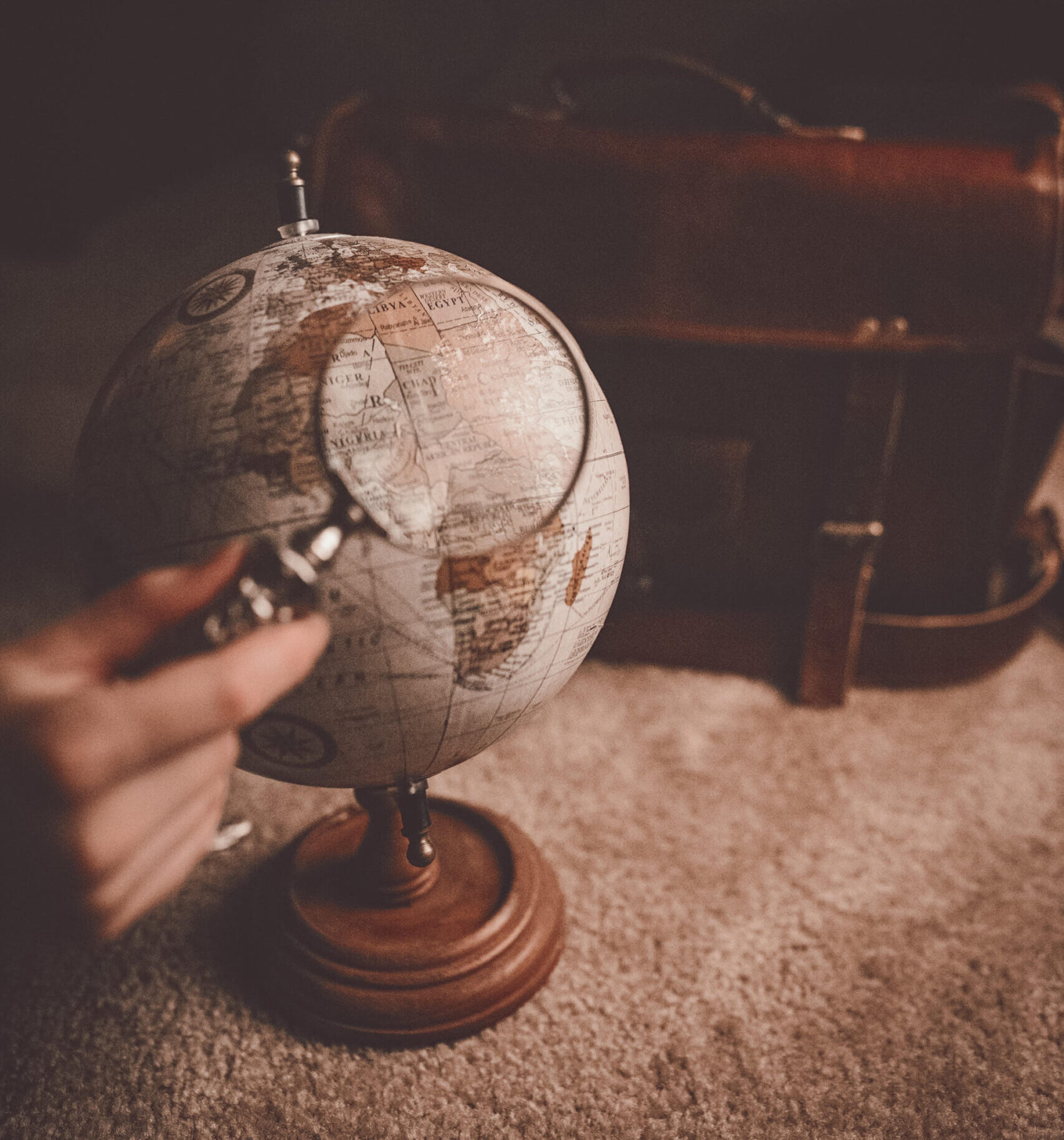
Of Mother’s Day
My mother was my first country, the first place I ever lived. — Nayyirah Waheed
I have written many, many times about the complexities of motherhood and how weekends like this one can bring up a lot of really complicated, really difficult feelings. Some of us have strained relationships with our own mothers. Some of us yearn to be mothers. Some of us have no desire to be mothers. Some of us have lost children, some of us have children who want nothing to do with us. Some of us are stepmothers or foster mothers or adoptive mothers or fur baby mothers. Motherhood is a wide open space, and we women tend to find our footing somewhere in the middle of it.
What I find interesting is that this holiday with all of its greeting cards and bouquets of flowers is actually the complete opposite of what it was meant to be. The gross commercialization of a day originally steeped in radical, religious feminism and meant to celebrate the full spectrum of womanhood has led to the American conception of Mother’s Day falling far short from the women’s suffrage and labor movements that birthed it.
Ever heard of Ann Reeves Jarvis? Neither had I. In the years leading up the Civil War, she began organizing “Mother’s Day Work Clubs,” using education to improve women’s access to health and sanitation.
Julia Ward Howe? A Boston poet and suffragette who is famous for penning the words of the Battle Hymn of the Republic. But she also published A Mother’s Day Proclamation, with words such as these:
Say firmly: “We will not have great questions decided by
irrelevant agencies. Our husbands shall not come to us, reeking
with carnage, for caresses and applause. Our sons shall not be
taken from us to unlearn all that we have been able to teach
them of charity, mercy and patience. …”
Anna Jarvis, Ann’s daughter, was never a mother herself, yet she repeatedly recalled her mother’s prayer that a day would be set aside to commemorate mothers for “the matchless service she renders to humanity in every field of life.” Following Ann’s death, Anna began petitioning the U.S. government to form a national holiday for mother’s, in her own mother’s remembrance. Two years later, Ann, a Methodist, created her own Mother’s Day service at her church in West Virginia, passing out 500 white carnations in her honor. Progressive and liberal Christian organizations, like the YWCA, picked up the cause and lobbied Congress to make Mother’s Day a national holiday and in 1914, Mother’s Day was signed into law.
So this Mother’s Day, I’m thinking about all the mothers who have come before me, the ones in my very bloodline and the ones who have been grafted in. I’m thinking about my mom’s mom, Nana, and how she left Scotland with her husband, their two daughters, and her in-laws in the late 1960’s to make their way to Canada. I’m thinking about my Nonna, who I never saw again after my biological father left us. She’d adopted him, I found out in later years. I’m thinking about my own mother, and how she simultaneously rooted me while giving me wings at the same time. I’m thinking about how I mother my own two, one of my womb and one of another’s, and of the long, winding roads that brought us here. I think of how much of my story has wide, gaping holes and question marks in it. I think of how I vow to never do that to my own children. I think of Mary, whose flesh tore and stretched and suckled our Savior at her breast. I think of Hannah, who pleaded for a miracle, and Hagar, who brought her descendent with her to the desert to die. I’m thinking of Moses’ mother, who placed her son in a reeded basket in the river out of desperation. I’m thinking of mothers at the southern border who basically do the same. I’m thinking of George Floyd’s mama, whose son cried out for her when he couldn’t breathe. I’m thinking of a little girl on a swing-set at Jack and Jill Nursery School who wondered if her own mother had forgotten her.

(Motherload by Kate Baer)
Mothers. Our hands heal and bruise and wring and soothe. We create worlds within us, through us, all around us. And our children know nothing of what they have awakened in us.




